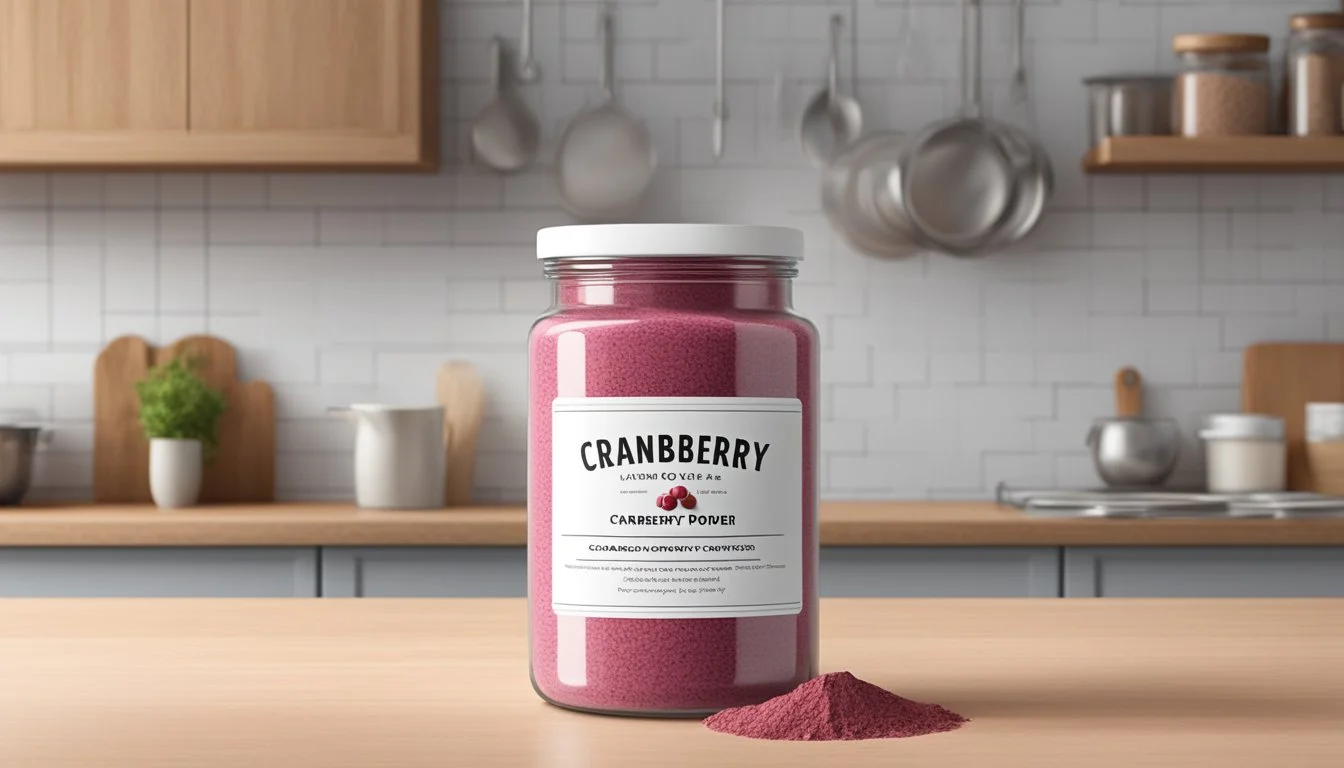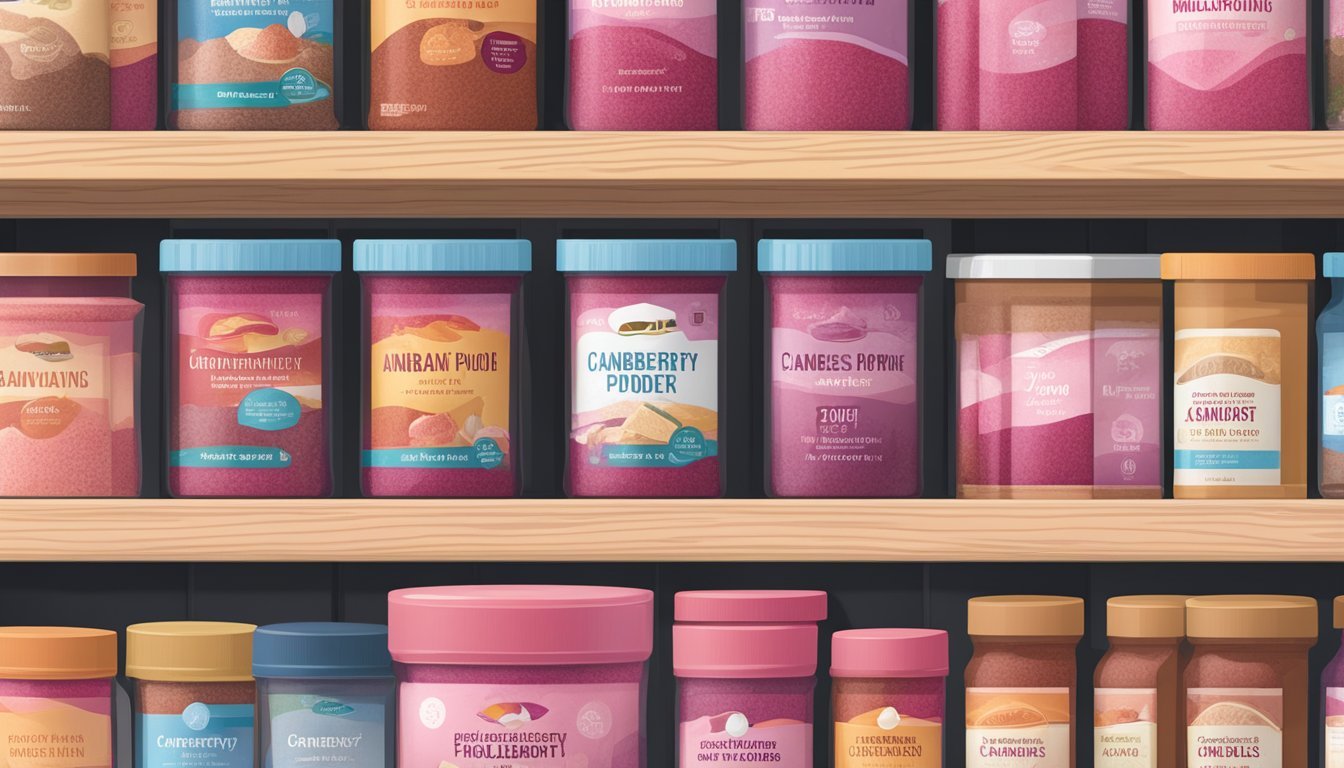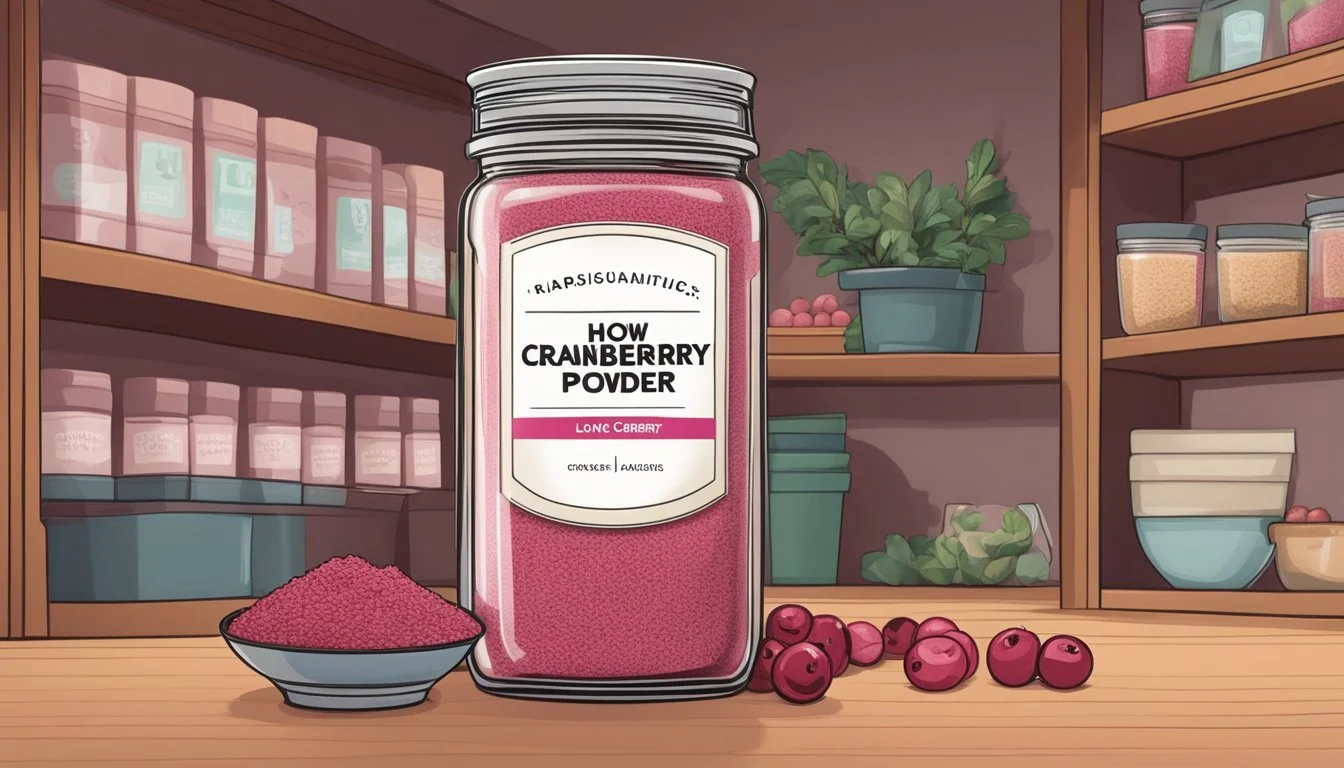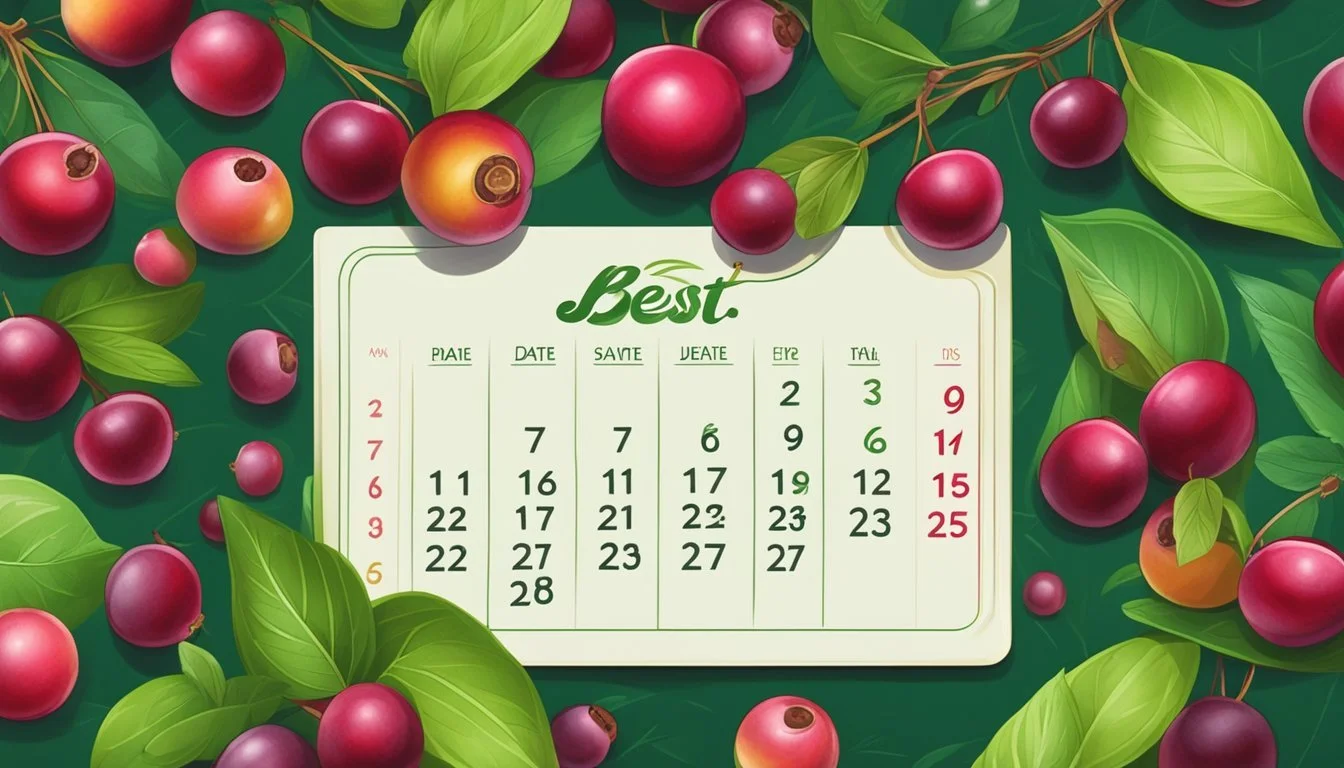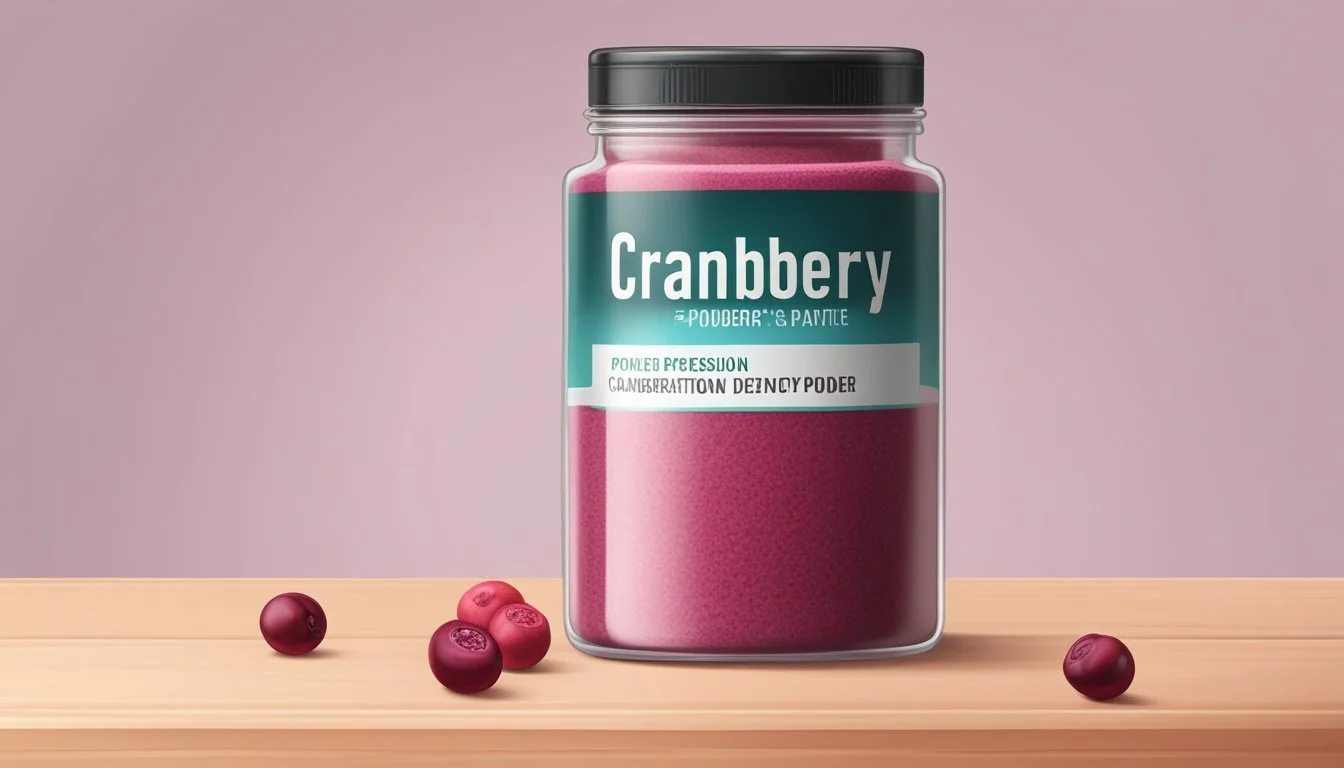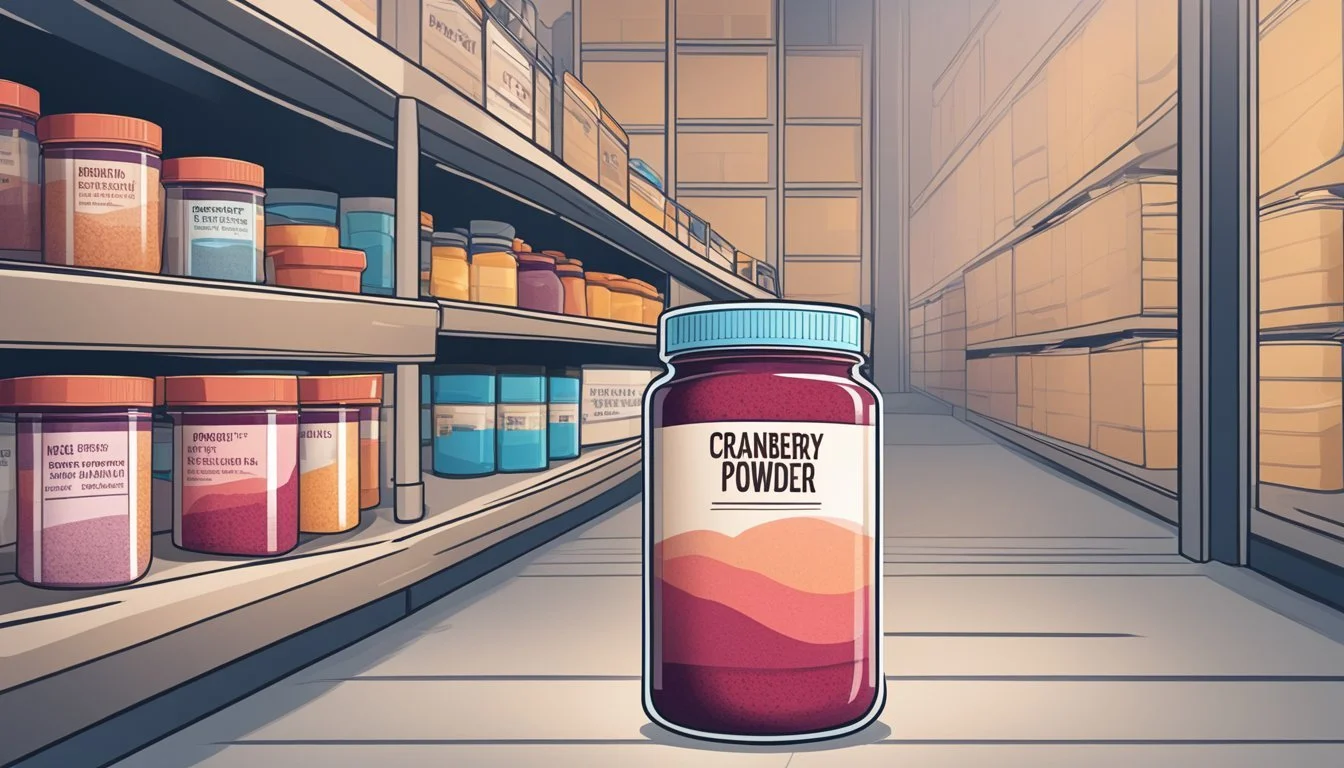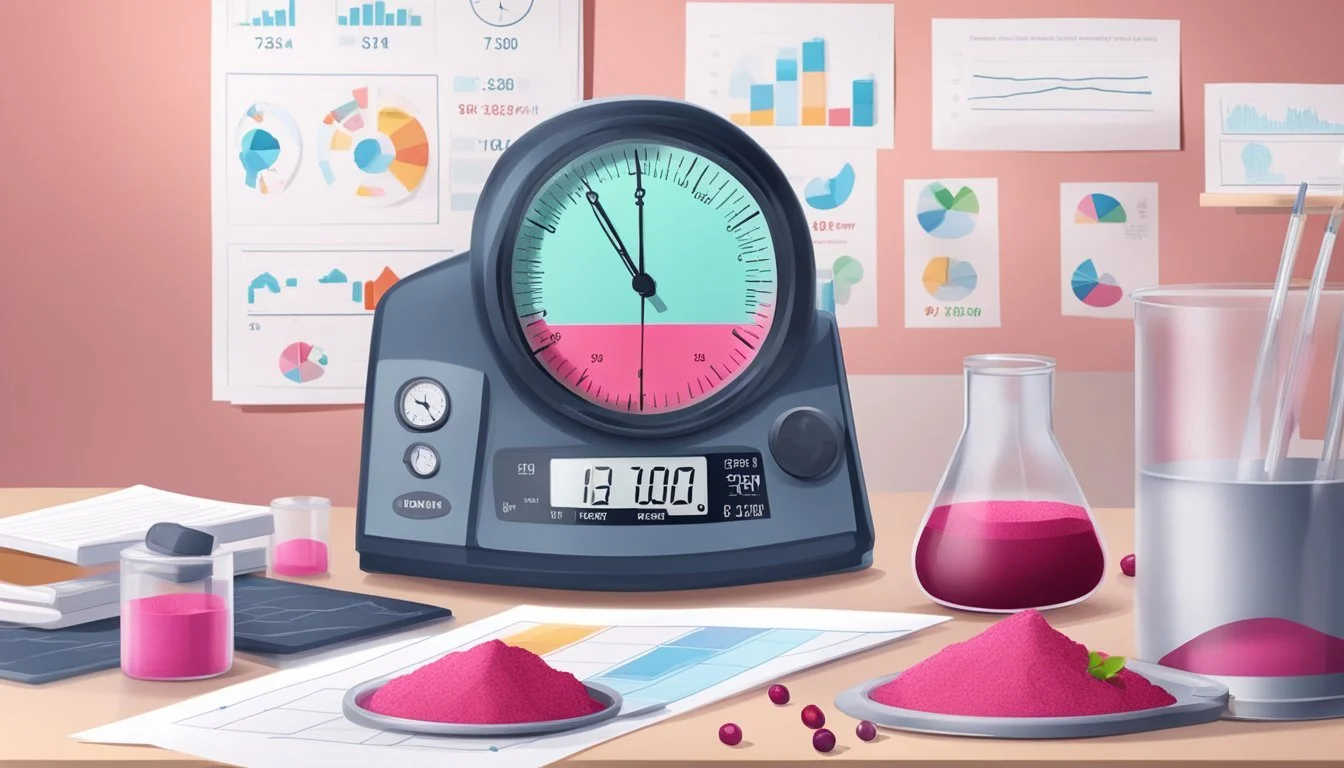How Long Does Cranberry Powder Last?
Shelf Life and Storage Tips
Cranberry powder is a concentrated form of the nutrients found in fresh cranberries and is often lauded for its high levels of proanthocyanidins, compounds known for their antioxidant properties. This form of cranberry preparation is sought after for its longer shelf life compared to fresh berries, which makes it a convenient option for those looking to harness the health benefits of cranberries without the worry of rapid spoilage. The stability of cranberry powder makes it a versatile ingredient in various culinary and nutritional applications, providing a burst of flavor and nutrients.
The longevity of cranberry powder on the shelf is due to the removal of moisture during the freeze-drying process, which significantly extends its usable life. While it typically maintains its quality for 12 to 18 months, it can remain safe to consume beyond this time frame if properly stored in a cool, dry place away from direct sunlight. However, over extended periods, there can be a decline in the powder's flavor, texture, and potentially its nutritional value, including the efficacy of the proanthocyanidins.
Storage conditions play a critical role in the preservation of the quality and potency of cranberry powder. It is essential to ensure that it is kept in airtight containers to minimize exposure to air and humidity that can lead to clumping or spoilage. Users are encouraged to inspect the powder for signs of degradation, such as an off smell or discoloration, to determine if it is suitable for consumption.
Cranberry Powder Overview
Cranberry powder is a concentrated form of the benefits that cranberries offer. It is used both as a supplement and a versatile ingredient in food and recipes.
Defining Cranberry Powder
Cranberry powder is a dried and ground form of whole cranberries, known for their rich color and tart flavor. This powder encapsulates the nutrients and substances found in the fresh fruit but in a more convenient, non-perishable format.
Benefits of Cranberry Powder
Cranberry powder is a source of antioxidants and vitamins, including vitamin C and vitamin E. It is often consumed for its potential to support urinary tract health and for its overall nutritional value.
Common Uses of Cranberry Powder
In the culinary world, cranberry powder is used to add a burst of flavor and nutrition to a variety of recipes. These include:
Food: Utilized as a natural flavoring and colorant in smoothies, yogurt parfaits, and baked goods.
Supplements: Often taken in measured doses to gain the health benefits attributed to cranberries without having to consume the fruit itself.
Using cranberry powder as part of a balanced diet can contribute to an individual's daily intake of beneficial nutrients.
Health Benefits and Considerations
Cranberry powder is renowned for its potential health benefits, especially concerning urinary tract health. It contains potent compounds that may offer both preventative and therapeutic effects, along with antioxidant properties.
Urinary Tract Health
Cranberry powder contains proanthocyanidins (PACs), which have been studied for their role in urinary tract health. These PACs help to prevent the adhesion of certain bacteria, such as E. coli, to the walls of the urinary tract, thus potentially reducing the incidence of infections.
Cranberry Powder for Preventing UTIs
Especially in women, who are more prone to urinary tract infections (UTIs), cranberry powder may serve as a non-pharmaceutical option to decrease the risk of these infections. However, individuals with recurrent UTIs should consult a doctor to discuss the appropriate use of cranberry products.
Additional Health Advantages
Aside from UTIs, cranberry powder possesses antioxidant properties that may support overall health. These properties can contribute to the prevention of various conditions including kidney stones and may have positive implications for people with diabetes.
Precautions and Interactions
While generally considered safe for most populations, including the elderly and children, certain individuals, such as those with a history of kidney stones or those on blood-thinning medications like warfarin, should approach cranberry supplementation with caution due to possible interactions. Pregnant women should only use cranberry products under medical supervision.
Product Composition and Varieties
Cranberry powder encompasses a concentrated form of the components found in cranberries. This section delineates the primary active ingredients and additional components in cranberry powder.
Active Ingredients in Cranberry Powder
Cranberry powder contains several active ingredients known for their potential health benefits. Proanthocyanidins are one such group of compounds found in cranberry powder which are linked to urinary tract health by inhibiting the adhesion of certain bacteria. Also present is Vitamin C, an antioxidant that supports immune function. Fiber is another key component, aiding in digestive health, while magnesium plays a role in numerous bodily processes. Additionally, salicylic acid in cranberry powder can contribute to reducing inflammation and pain.
Additional Components
Beyond the active ingredients, cranberry powder may include artificial sweeteners to improve taste, as pure cranberry can be quite tart. However, the composition and addition of sweeteners can vary between products. It is vital to check product labels for specifics on sweetener content and other non-active components which can influence both the nutritional profile and shelf life of the cranberry powder.
Storage Guidelines
When preserving the quality of cranberry powder, specific storage conditions and understanding shelf life are essential for maintaining its potency and flavor.
Ideal Storage Conditions
To ensure the longevity of cranberry powder, one should store it in a cool, dry place, away from direct light. A pantry often provides the optimal conditions with a stable temperature range. It is crucial that the powder is kept in an airtight container to minimize exposure to moisture and air, which can degrade the quality over time.
Temperature: Below 70°F (21°C) is preferred.
Humidity: Low humidity environments extend freshness.
Light: A dark place is ideal to prevent degradation.
Shelf Life Determination
The shelf life of cranberry powder can be influenced by the quality of the package and the conditions under which it is stored. Even when stored properly, cranberry powder generally has a shelf life of:
Unopened: Up to 2 years
Opened: 6 to 12 months
It is suggested that consumers freeze their cranberry powder to extend its shelf life further. If one chooses to refrigerate or freeze the powder, it should remain in a sealed container to prevent it from absorbing odors or moisture from its surroundings.
Quality and Freshness Indicators
Determining the quality and freshness of cranberry powder is essential for ensuring its safety and flavor profile. This section will guide the reader through evaluating the freshness and identifying spoilage in cranberry powder.
Assessing Cranberry Powder Freshness
One can assess the freshness of cranberry powder through specific sensory attributes:
Smell: Fresh cranberry powder should have a fruity, slightly tart aroma. Any off-odors can be a sign of degradation.
Color: The color of fresh cranberry powder typically ranges from bright to deep red. A vibrant color indicates good quality.
Flavor: A fresh, tangy, and sweet taste is to be expected from unspoiled cranberry powder.
Signs of Spoilage
Cranberry powder may show several signs when it begins to spoil:
Discoloration: If the powder exhibits a faded or brownish color, this could indicate spoilage.
Off smell: Spoiled cranberry powder may develop an unusual or foul odor.
Taste: A dull taste or a change in the powder’s natural flavor profile might suggest that it's past its best.
Regular checks for these indicators are important to maintain the efficacy and enjoyment of cranberry powder.
Usage Tips and Recommendations
When incorporating cranberry powder into a diet or determining proper dosage, one should consider both the culinary potential and the health recommendations. It's essential to understand how to effectively use cranberry powder in recipes and what constitutes a sensible daily intake.
Incorporating Cranberry Powder into Diet
Cranberry powder offers a versatile way to add a burst of flavor and a nutritional boost to a variety of foods. To maximize shelf life while maintaining flavor and nutrient content, one should store cranberry powder in an air-sealed package away from light.
Smoothies & Juices: Add a tablespoon to your morning smoothie for a tangy flavor.
Baked Goods: Mix into muffin or pancake batter to enrich your baked items with a fruity note.
Yogurt & Oatmeal: A sprinkle into breakfast bowls can invigorate your routine meals.
Salad Dressings: Blend with oil and vinegar to create a unique dressing for salads.
Recipes benefit from the powder's concentrated taste, and a small amount can go a long way, making it cost-effective and practical for daily use.
Recommended Dosage and Frequency
The appropriate daily intake of cranberry powder can vary based on individual needs and product concentration.
Capsules/Tablets: For supplements, follow the manufacturer's instructions, typically a dosage of 250-1500 mg.
Pure Powder: If using the powder directly, start with small amounts such as 1/4 to 1/2 teaspoon and adjust according to taste and dietary preferences.
Consistent and moderate consumption is recommended rather than sporadic high doses, to maintain a balanced approach to one's health regimen. It's advisable to consult with a healthcare provider for personalized dosage advice, especially when using cranberry products for specific health concerns.
Side Effects and Risks
While cranberry powder is considered safe for most people when taken in appropriate quantities, some individuals may experience side effects or be at higher risk for adverse reactions due to specific conditions or sensitivities.
Common Side Effects
Stomach upset and diarrhea: These are among the most frequently reported side effects. They tend to occur when cranberry products are consumed in large amounts.
Nausea and vomiting: Some people may also experience nausea or vomiting as a reaction to cranberry powder.
Potential Risks for Specific Groups
Pregnant women: Cranberry products are generally thought to be safe during pregnancy, but due to limited research, it's advised to consume them in moderation.
Breastfeeding: The safety of cranberry during breastfeeding is not well-documented, thus caution is recommended.
Children: Young children may be more susceptible to stomach upset and diarrhea from cranberry products.
Elderly: The elderly should also be cautious, as they may have increased sensitivity to cranberry powder's effects.
Individuals on antibiotics: Those taking antibiotics, especially for urinary tract infections, should consult with a healthcare professional, as cranberry can interact with certain medications.
Consulting Healthcare Professionals
When incorporating cranberry powder into a health regimen, consulting healthcare professionals is a crucial step to ensure its appropriate use, especially in relation to urinary tract health and potential interactions with medications.
When to See a Doctor
Individuals should consider seeing a doctor if they experience symptoms of a urinary tract condition such as pain during urination, frequent urges to urinate, or lower abdominal pain. It is important they seek medical advice before using cranberry powder to confirm that it is a suitable option for their specific health needs.
Symptoms prompting a doctor's visit:
Pain during urination
Persistent urge to urinate
Lower abdominal discomfort
Role of Healthcare Providers in Cranberry Supplementation
Healthcare providers, including urologists and primary care physicians, play a pivotal role in guiding the use of cranberry supplementation. They can assess whether cranberry powder can be beneficial as part of a patient’s treatment plan and determine the correct dosage to avoid any adverse effects or interactions with other medications.
Healthcare provider responsibilities:
Evaluate individual health conditions
Advise on cranberry powder dosage and form
Monitor for interactions with existing medications
Provide recommendations based on scientific evidence and individual health profiles
Scientific Research and Evidence
In exploring the longevity and efficacy of cranberry powder, significant insights emerge from clinical research and comprehensive analyses. To contextualize its shelf-life, one must consider the bioactive stability and how it correlates with the effectiveness noted in various studies.
Clinical Studies on Cranberry Efficacy
Clinical trials have provided mixed results on the effectiveness of cranberry products, including powders, for urinary tract health. The American Urological Association acknowledges the use of cranberry products as part of the supplemental interventions for urinary tract infections (UTIs). Researchers have investigated cranberry powder's potential to inhibit Escherichia coli, the bacterium commonly associated with UTIs. In studies where participants received encapsulated cranberry powder, anti-inflammatory benefits were noted along with a reduction in the incidence of UTIs. However, these studies also underscore the need for considering, dosage, and formulation as key factors influencing effectiveness.
Analysis of Research Findings
A meta-analysis of the research suggests variability in the efficacy of cranberry interventions. It is important to parse the data carefully to account for variation in powder formulation, the dosage used, and placebo comparisons. While some studies report cranberry's ability to modulate gut microbiota and display antioxidant properties, the evidence is not unequivocal. The long-term stability of cranberry powders and their bioactive constituents is crucial, as degradation over time could impact the therapeutic potential related to the bladder and overall urinary tract health.



